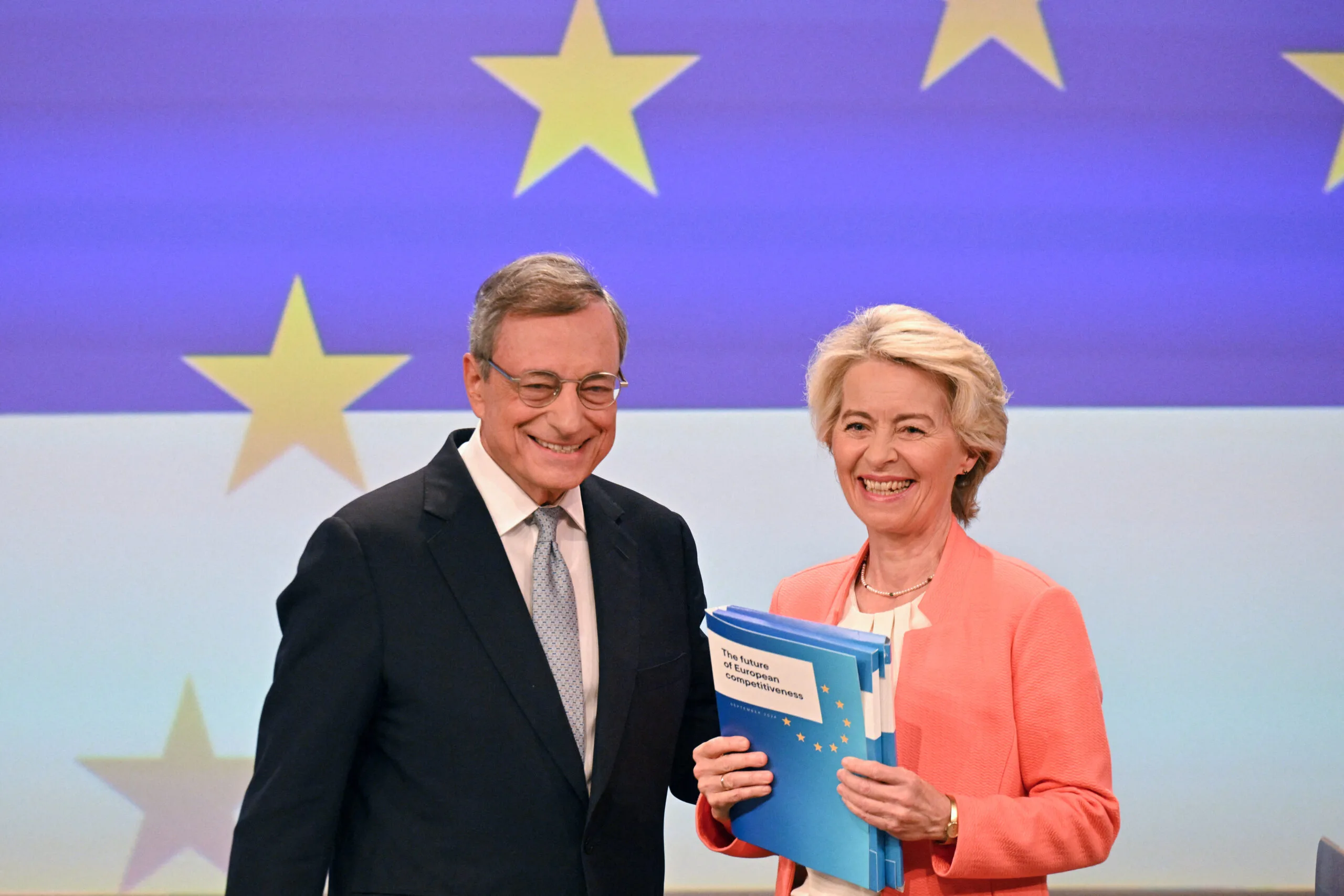Brussels – On Friday, November 8, EU heads of state and government will be hosted by Viktor Orbán in Budapest in an informal summit that will inevitably look ahead to the ongoing elections in the United States, on the outcome of which the positioning of the 27 on various dossiers depends to a large extent. Knowing the new White House tenant will make all the difference from the war in Ukraine to the competitiveness challenge. However, if only a step backwards by Washington could shake the EU’s support for Kyiv, the 27 risks running aground on their own on how to follow up on the recommendations made by Mario Draghi.
At the Puskas Arena summit, leaders will meet as early as Thursday evening to discuss transatlantic relations in light of the “election day”. A senior EU official explained that, beyond possible scenarios, the intent is “to convey an important message focused on Europe.” If a winner emerges from the U.S. polls, be it Harris or Trump, the 27 will forward ritual congratulations, and then reaffirm the “great importance” of the EU-USA relationship. And should anyone in Washington challenge the election results, the EU will simply express “full confidence” in the star-studded democratic process.

The next day, Mario Draghi, European Central Bank President Christine Lagarde and Eurogroup President Pascal Donohoe will arrive in Budapest. Together, they will examine the proposals the former Italian premier put forward in his report on the future of European competitiveness drafted for Brussels. “The issue of financing will be crucial,” admitted a senior EU official. Draghi spoke of 800 billion investments per year, a monstrous figure. Although everyone agrees on the Italian economist’s alarmism, “a discussion is needed” on what tools to use to revitalize European industry.
It is not an easy discussion, which risks ending with the Draghi report stuffed in a drawer for the sake of a quiet life. The ambassadors of the member countries, who have already had three exchanges on the summit’s draft final declaration on the “New Course for European Competitiveness,” are banging into it. They will have a fourth exchange this evening and Wednesday, November 6. Reportedly, the 27 are leaning toward a “more political, more concise, less divisive but more prospective” slant: no long, detailed thematic chapters, but a “principled endorsement” of the two Letta and Draghi reports and a call for “urgent EU action to strengthen its competitiveness.”
The problem is that Ursula von der Leyen is the first to refuse to be open to the possibility of a new common debt instrument. And with her, several member states. At the Budapest summit, at most, the 27 will keep the generic indication of committing to “explore new instruments” to reach the bar set by Draghi. The latest draft viewed by Eunews, cites the EU’s Multiannual Financial Framework “as an essential means to achieve our strategies,” the Capital Markets Union “to mobilize private financing,” the “greater involvement of the European Investment Bank.” And a commitment to “the introduction of new own resources.”
No mention of an EU sovereign wealth fund, described by a senior EU official as “a bit of a scarecrow term,” an idea that is not shared by everyone” but on which “we should continue to work.” The same source said that “if the Commission does not have the courage to do it right now, it will get complicated.” Meaning that all the indications that EU leaders will raise at the summit will remain baseless: “ensuring industrial renewal and decarbonization,” “increasing preparedness and defence capabilities,” “putting Europe at the forefront of global research and innovation.” Phrases that are not likely to go very far if EU leaders in Budapest still decide to fly low.
English version by the Translation Service of Withub


![Mario Draghi in Parlamento europeo [archivio]](https://www.eunews.it/wp-content/uploads/2024/09/dragh5-350x250.png)



